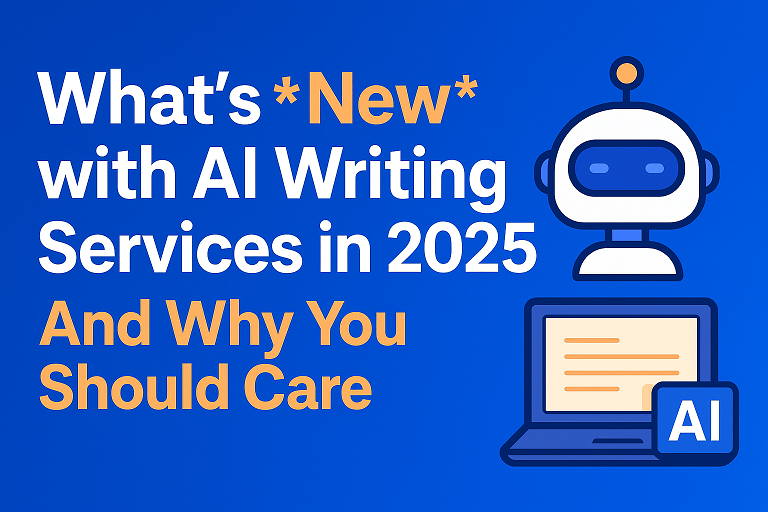Introduction
The rapid advancement of artificial intelligence (AI) is reshaping numerous fields, and psychology is no exception. From innovative mental health solutions to new understandings of human cognition, AI and psychology are converging in transformative ways. This article explores the latest developments in this fascinating intersection, highlighting AI’s growing role in mental health support, psychological research, and the ethical considerations shaping these advancements.
AI and Mental Health: More Accessible Support
One of the most impactful uses of AI in psychology has been in the realm of mental health. In 2023, the number of people seeking mental health support surged, but access to care remained a challenge in many parts of the world. AI-driven mental health tools are helping to bridge this gap by offering scalable solutions that can provide support and guidance at any time. Here are some ways AI is currently transforming mental health support:
- AI-Powered Therapy Bots
Chatbots like Woebot, Wysa, and Youper are designed to simulate therapeutic conversations based on cognitive behavioral therapy (CBT) techniques. These AI chatbots use natural language processing (NLP) to understand and respond to users, offering exercises, resources, and reflections that can help manage stress, anxiety, and depression. While these bots are not substitutes for professional care, they provide a starting point for individuals in need of immediate support. - Emotion Recognition and Sentiment Analysis
AI algorithms are becoming adept at recognizing emotions in text, speech, and even facial expressions. For example, Affectiva, an AI company specializing in emotion recognition, uses facial and vocal data to analyze emotional states. This can be applied to help mental health professionals better understand clients’ feelings or even support crisis interventions by identifying people who may be at risk. - Virtual Reality (VR) Exposure Therapy
Virtual reality combined with AI is being used to treat phobias, PTSD, and social anxiety by exposing patients to simulated environments in a controlled manner. In 2023, VR-based treatments have expanded significantly as AI algorithms provide customized experiences based on each patient’s unique needs and progress.
AI in Psychological Research: Gaining New Insights
AI is also proving invaluable in the field of psychological research, enabling new insights into human behavior, cognition, and mental health.
- Predictive Modeling for Mental Health Risks
Predictive models powered by AI analyze large datasets, including genetic, behavioral, and environmental factors, to predict individual risks for mental health conditions like depression, anxiety, and schizophrenia. Recent studies have found that these models can identify at-risk individuals with high accuracy, allowing for early interventions and tailored support. - Studying Human Cognition through Neural Networks
AI models inspired by the human brain, such as deep neural networks, are helping researchers understand cognition and decision-making. For example, a 2023 study used AI to model the way humans categorize and process information. By comparing human and AI responses, researchers are beginning to uncover the mechanisms of memory, perception, and problem-solving, which may one day lead to improved treatments for cognitive disorders. - AI in Behavioral Analysis and Personality Assessment
AI tools are now being used to analyze digital behavior patterns, such as social media activity, to create personality profiles. This can be used in various applications, from targeted therapies to workplace assessments. Recent algorithms can analyze language patterns, sentiment, and interaction styles to infer traits like extraversion, openness, and conscientiousness. However, this use of AI also raises important questions around privacy and consent, as people may not always be aware of the data being collected or how it is being used.
Ethical and Privacy Concerns
As AI continues to evolve in psychology, ethical concerns are an integral part of the discussion. Mental health data is incredibly sensitive, and preserving privacy is paramount.
- Data Privacy and Security
In response to these challenges, developers are increasingly using privacy-preserving techniques like federated learning, which allows AI to train on decentralized data without collecting it in one central database. This approach keeps patient data secure while enabling AI systems to learn and improve. - Bias and Fairness in AI Models
Another challenge is ensuring fairness and mitigating bias in AI models used in psychological contexts. Models trained on biased data can inadvertently reinforce stereotypes or overlook specific populations. The AI community is actively working on bias reduction techniques to ensure that AI models are equitable and inclusive, but this remains an area of concern, especially in mental health and psychological assessments. - Human Oversight and Accountability
AI tools are not perfect, and in psychology, human oversight is essential. While AI can assist in diagnostics and therapy, it should never replace the nuanced judgment of trained professionals. Clear regulations and accountability frameworks are needed to ensure that AI tools are used responsibly and ethically in psychological practice.
Future Directions: Where AI and Psychology are Headed
Looking forward, the future of AI and psychology is filled with potential:
- Hybrid AI-Psychologist Models
The next frontier may involve integrating AI into traditional therapeutic practices, creating hybrid models where AI tools augment the work of human psychologists. These models could provide practitioners with insights and suggestions based on real-time data, allowing them to tailor treatments more effectively. - AI as a Tool for Self-Reflection and Personal Growth
Personalized AI tools for mental health and wellness will likely evolve to offer self-reflection and growth resources. AI-driven journals, goal-tracking, and mood monitoring tools may become popular for individuals who want to take a proactive role in their mental wellness. - Improved Accessibility and Global Reach
Finally, AI will likely play a significant role in democratizing mental health resources on a global scale. Through smart devices, AI-driven support can reach remote and underserved communities, offering resources and support that were previously inaccessible.
Conclusion
The collaboration between AI and psychology is creating a landscape where mental health and cognitive research are more accessible, personalized, and insightful than ever before. However, it is essential to proceed with caution, recognizing the ethical challenges and the limits of AI’s capabilities in mental health and psychological contexts. With a balanced approach, AI has the potential to profoundly impact both individual lives and the broader understanding of the human mind.
Stay tuned for more updates on the convergence of AI and psychology as this dynamic field continues to evolve!




